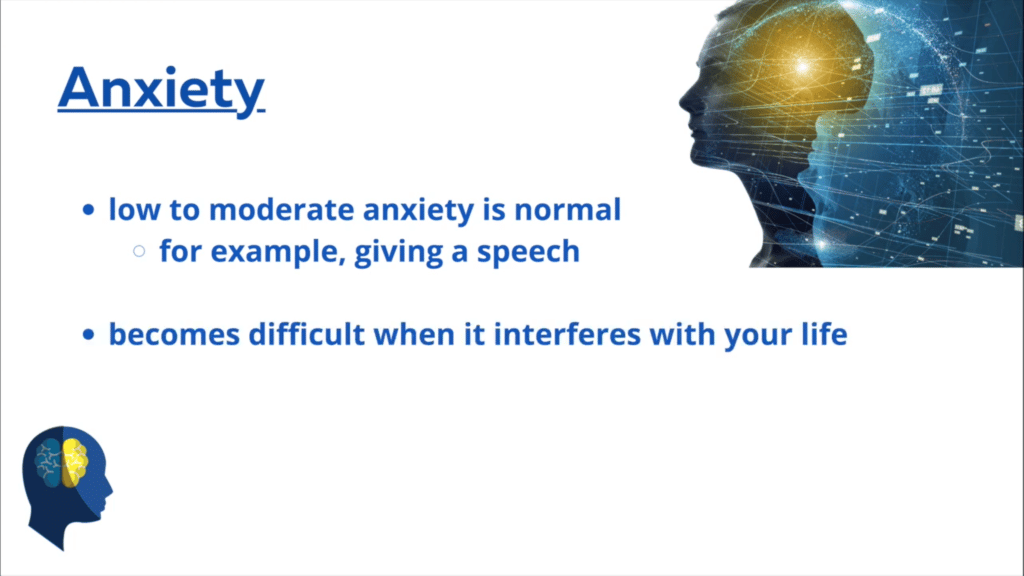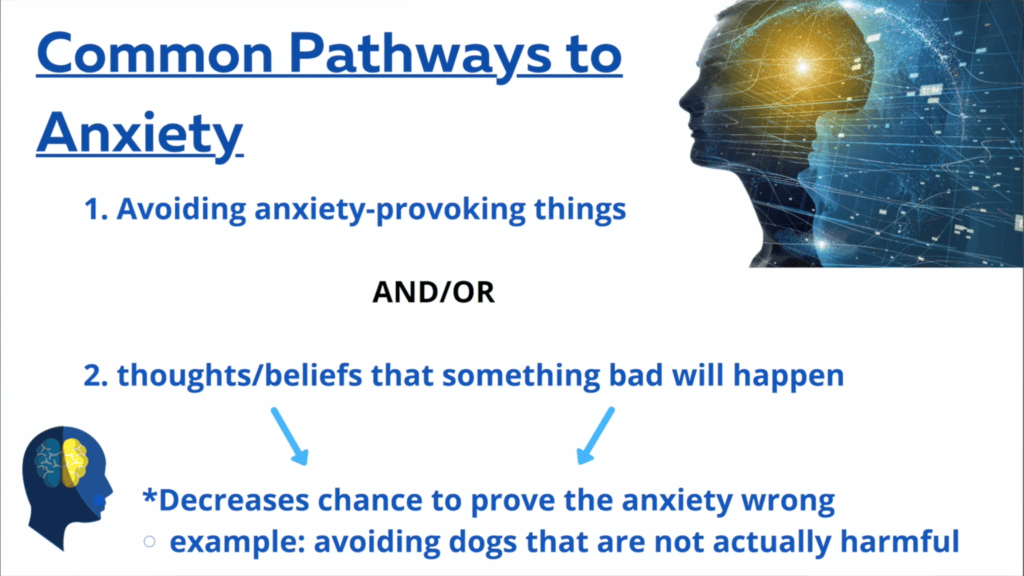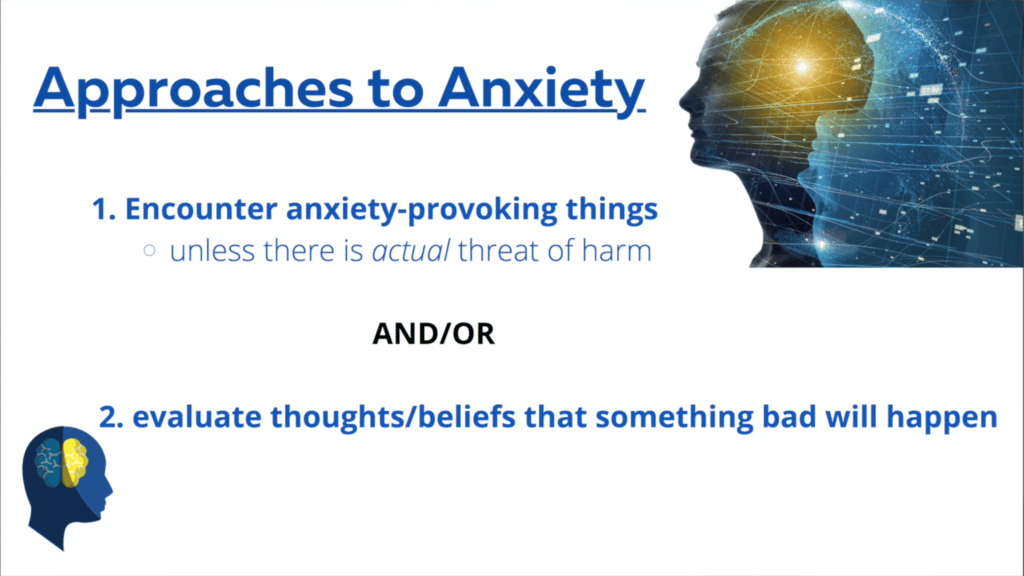Anxiety can be a natural part of our lives, but it can also become very difficult and create barriers for us.
This video clip discusses some highly-researched common causes of anxiety. It also discusses a few ways to cope with anxiety that may help experience reduce it in the long-term.
If you are interested in more about anxiety and how to cope with it, check out this research-based book with new insights on anxiety and methods to cope with it. Another book discusses time-tested strategies from CBT that help to cope with both anxiety and depression.
Welcome back, this is Dr. Matt B with your Emotional Minutes. Today we’re talking about anxiety disorders or high levels of anxiety in general.
Anxiety can be a very difficult thing to deal with. Sometimes people will ask “how do people get anxious?” or “how did I get anxious? how did I get to this point?”. There are many ways for this to develop or occur. I am going to cover a few common reasons why people might feel anxious or develop certain types of anxiety disorders.
When Anxiety Stops Being Normal
I want to start by saying that a certain amount of anxiety is normal. This is because it signals us to act when we have a certain task to perform.
When we talk about anxious feelings that are not normal, we are referring to when it messes with people’s lives.

Common Types
There are many different types of anxiety.
One example is phobias, where people are extremely afraid of a particular thing. Common phobias include arachnophobia (the fear of spiders), claustrophobia (the fear of tight spaces), and acrophobia (the fear of heights).
Another type is social anxiety. This is when people have fears and thoughts of being judged in social situations and some negative social outcomes occurring.
Frequently, people may experience generalized anxiety, where they feel a lot of worry about many different topics.
Avoidance
There are some common factors in people’s lives that can contribute to developing anxiety disorders. One factor is avoidance, or avoiding things that might be scary or cause fear and anxiety.
There are things in life that can be harmful and should be avoided. However, we might convince ourselves that something is harmful and never get a chance to disprove that belief.
Initially, if you are always avoiding something you are afraid of, there is some relief; This is because you are not in contact with the thing you’re afraid of. However, you never get a chance to prove to yourself that what you’re avoiding might not be harmful.
An example of this is a person with a fear of dogs continuing to avoid dogs. Most dogs you meet are kind and not threatening, but occasionally you will meet one that is threatening. Someone who always avoids dogs never gets a chance to prove to themselves that dogs are not inherently harmful.
Thoughts and Beliefs
The second common way is through thoughts and beliefs. Oftentimes, people feel anxious about something because they interpret situations with a sense of dread and assume that the worst will happen.
For example, people who experience social anxiety believe that something will go wrong when they are in social situations. You can see how this thought process and those beliefs can be connected with avoidance. If you truly believe that something bad is going to happen, you might avoid that situation.
This fuels the process of never having a chance to prove yourself wrong because you are avoiding the situation. The fear and the avoidance interact with each other, as well as occur with each other.

Dealing With Anxiety
People who experience anxiety may get into certain habits or try to break those patterns. For example, with avoidance, they might avoid things less or do things that are outside of their comfort zone. Doing this will help them disprove that the things they fear might be harmful to them.
Other times, people might use cognitive reappraisal. This term means checking in with your thoughts, then thinking about the situation in a less frightening way.

If you’re experiencing a lot of difficulties with anxious feelings, I always suggest reaching out to a mental health provider.



